The Cure: Pornagraphy in a Small Southern Town
The Cure: Pornagraphy in a Small Southern Town
“You passed up buying the latest Dave Matthews CD for The Cure’s greatest hits? Isn’t that a gay band?” stated a coworker of mine way back in 1997 after The Cure’s then-current greatest hits collection, Galore, had just come out on CD. Remember, this was before MP3s and iTunes, hence the CD reference. One had to actually go to a record store or a big box store to get one’s music. Anyway, the point is that up until about that time in my love affair with music, I never bought a Cure album in view of my casual friends or my co-workers, or admitted to liking them, because of this type of reaction. Yeah, I didn’t want to be picked on for liking The Cure, I admit it. By 1997 though, I had been through college and overcome any lingering middle school induced fear of being picked on for being something that was socially unacceptable at the time in my little conservative God-fearing southern town – like being gay (regardless of whether you were or not). Of course though, I had friends who were music fans who didn’t let the categorization of The Cure as “gay music” (mostly referred to as such by metalheads and jocks) hold back their appreciation or even love for the band’s music. Whatever one thinks of the band’s image, The Cure made (and still make) guitar based rock music, and therefore appeal to me, and many others, on that level first and foremost regardless of what smaller minds might think of their image. Besides, their image was always one based more in the gothic literature sense (think Edgar Allan Poe) than the underground homosexual/drag queen sense, as if that really even mattered. To those who don’t understand the imagery associated with either genre or scene and the meaning or symbolism behind it, it’s all “gay.” So, it was best to keep one’s interest in The Cure’s music to oneself in my middle school days. My middle school was a kind of embryonic Idiocracy like world. If you got good grades, liked Shakespeare more than college football, or were smart; you were gay in the eyes of just about every kid who was jostling to be the next cool varsity football star.
I discovered The Cure much like any typically uncool kid, who spent a great deal of time taping songs off the radio, would have in the mid 80s: by chance, while dialing through the FM bands. That’s something else that has changed drastically since the days when I first discovered The Cure. I had heard “Just Like Heaven” on the radio, and despite being deep into U2 at the time, I couldn’t help but become enamored with The Cure’s pop-rock hit. The song was upbeat and catchy, but had a sense of melancholy about it that was unmistakable. It wasn’t until I got my hands on a copy of Pornagraphy, via that one older, smarter, and much more hip music fan in my life (the kind that everyone has at one point-be it an older brother, sister, cousin, or classmate) that The Cure really began to speak to my existentially depressed early teen psyche. U2, who were also immensely unpopular with my classmates and torturers-I didn’t wear one of their t-shirts until I was a senior in high school-served to stoke my interest in social consciousness. The Cure served to confirm the idea that being smart, and a little maudlin, wasn’t abnormal. The Cure were much more than maudlin though. Pornagraphy is one of the most atmospheric and dark works of musical composition ever recorded. From the apocalyptic clarion guitar lines of “One Hundred Years” to the downward spiral of the album’s title track “Pornography,” there is little light or hope present outside of a scant few upbeat musical lines scattered throughout the album. It was the kind of album that really wouldn’t have a peer in the gothically dark and depressing sense until NIN’s The Downward Spiral would come along. Pornagraphy would play through my headphones over night many a time back then when I was rejected by a cute girl, or felt that I would absolutely never get a girlfriend. Geeze, what a putz I was. Weren’t we all though at some point at that age? Some of us turned to mopey music as a catharsis rather than the usual self destructive teenage activities. My drug of choice at that point was music. It still is, and to this day remains the most reliable means of self-medicating I’ve encountered; even if at that point music loving was a very closeted addiction for me.
It would be another medium, comic books and friendships started over a common interest in it (friendships made during my college years while attending a university that was ironically in the same town as my Idiocracy-like middle school) that would allow me to come out of the closet as a Cure fan, so to speak. Being, not only a music fan, but a fan of comic books as well, I immediately recognized the thematic and artistic similarities between Neil Gaiman’s The Sandman series and The Cure’s music and look. The Sandman’s gothic romance themes and dark visuals matched The Cure’s lead singer Robert Smith’s lyrics and themes. To a lover of literature, a topic The Sandman referenced as incessantly as it did reverentially, and an English major, The Sandman was a dream (no pun intended) comic book series. Endless (again, no pun intended-Sandman fans will get that one) discussion of the series’ themes and literary references often lead to discussion of the kind of music that was similar in theme, which, of course, The Cure’s music was. By this point, deep into my college years and freed from hick town culture rules, it was okay to admit that you liked The Cure, and could have friendships with people from all walks of life, be them gay, straight, intellectual, hardcore, metal, or alternative who were Cure fans also. Gone was the fear of reprisal, emotionally or physically, from the bigoted masses. Diversity was what mattered. It was to be appreciated, not debased by those bound by the imposed mass conformity rules that shunned everything that was considered outside the defined norm.
Diverse is an apt way to describe The Cure’s music, especially as reflected in their mid to late 80s releases. The music’s diversity fuels its inherently wide appeal. From pop-rock hits (“Just Like Heaven”) to dark and brooding atmospherically drenched guitar rock (“Fascination Street”), to straightforward rock (“Lovesong”) there was, and still is, an amazing array of diversity in The Cure’s music that translates into an amazing array of appeal to potential listeners. This diversity does, at times, present its challenges to Cure listeners though. Fans of their dark and brooding work can be put off by their pop songs. Casual, but appreciative fans of their pop songs can be put off by their dark and brooding work. Herein lies the band’s greatness though, as they often times, like all great literature or art, challenge their listeners to modify their expectations and open their ears to sounds that they otherwise wouldn’t give a second, let alone first, listen to.
It might be shocking or unbelievable to the youth of today that at one time being a fan of The Cure’s music, as well as an avid reader of comic books, was the hallmark of ultimate uncoolness and that one might be picked on for it, but believe me, it’s true. Alternative music wasn’t mainstream and comic books were widely derided as kid stuff for dorks. By my senior year the views on this were changing and as implied above, comic book and alternative music fans ultimately became the cool elite. It’s now a virtue to have the cognizance to accept and enjoy without fear music and art forms that challenge one’s sensibilities or comfort zones, even in some of the same (former) hick towns like I grew up in. The Cure’s music can definitely do that, but it can also reinforce, often at the same time, what it is that one holds most dear about rock (and pop-rock, and goth, and pop) music in general because it is all incredibly intelligent and thought provoking in nature.
So, now that it’s okay to be an “out” fan of The Cure in America, even in the Deep South (Who says the progressivism is doomed?), it’s finally time that this Cure fan saw them live in concert, without fear of reprisal. Honestly, at this point, personally I could care less, I’m not the “nerd” I was in middle school. I am still a Cure fan though, and from accounts of their shows published at sites like Consequence of Sound, the shows have been grand in stature with the band playing 28 songs and doing up to four encores. It sounds like this Cure tour is one not to miss, regardless of where it is being played, or what smaller minds might think of your regard for the band and their music.
The Cure are currently touring North America with The Twilight Sad. The tour stops in Charlotte to play PNC Pavilion on June 23rd.

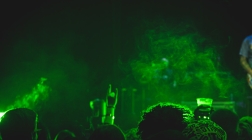
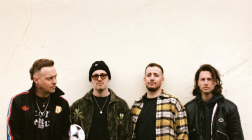

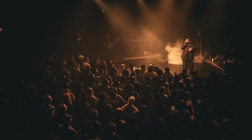

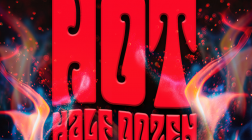
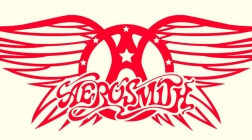









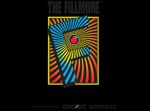
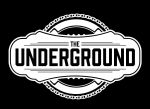









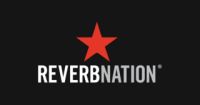
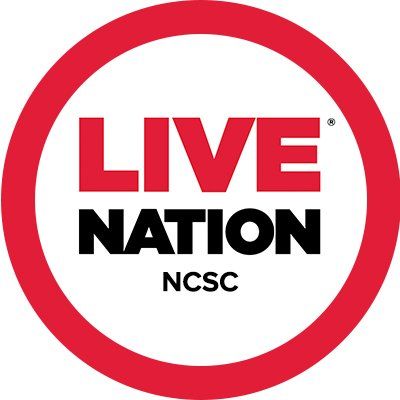
Kiersten
May 27, 2016 at 4:49 pm
Everyone loves what you guys are usually up too. This type of
clever work and reporting! Keep up the wonderful works guys I’ve included you guys to our blogroll.
Jim
May 27, 2016 at 4:10 pm
It is the best time to make some plans for the future and it is time
to be happy. I’ve learn this publish and if I may just I want to suggest you
few fascinating issues or tips. Perhaps you could write subsequent articles relating
to this article. I want to read more things approximately it!
Jimmy
May 27, 2016 at 10:59 am
These are in fact fantastic ideas in about blogging.
You have touched some good things here. Any way keep up wrinting.
Jimmy
May 27, 2016 at 10:59 am
These are in fact fantastic ideas in about blogging.
You have touched some good things here. Any way keep up wrinting.
Kill
May 27, 2016 at 5:00 am
I couldn’t resist commenting. Well written!